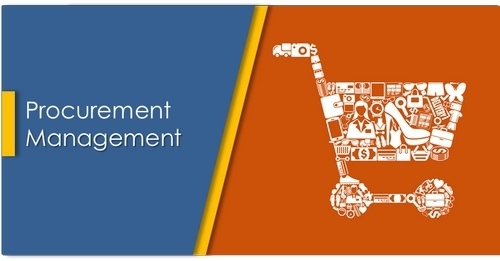
Maximizing Procurement Efficiency: Stages and Benefits

Procurement Management is the strategic approach to purchasing goods and services from external suppliers It involves efficient processes, stages, and benefits that help organizations meet their goals and expectations, while also minimizing supply chain risks and maximizing savings
Procurement Management refers to the process of purchasing goods from external suppliers in the market. This involves managing the ordering, receipt, review, and approval of these items. Effective Procurement Management also involves managing relationships with suppliers to ensure high levels of service are received. It is a crucial aspect of procurement management, as the ultimate goal is to receive the goods you have paid for.
Procurement management not only allows the company to save money on purchases from external parties, but also provides additional benefits such as improved supplier relationships, increased efficiency in the purchasing process, and better control over inventory and expenses.
The working of the Procurement Management process :
When considering the procurement of goods and services, it's crucial for companies to evaluate whether they should purchase or rent from external vendors. It's essential for management to weigh the long-term cost-effectiveness and benefits of these decisions. To make informed decisions, companies must first identify their exact requirements and research the various options and alternatives available. With numerous suppliers in the market, it's important to have a clear criteria for selection based on thorough market research and understanding.
Vendors in the market have the option to bid on the product or goods requirement, and the company can use selection criteria to choose the best one from the pool of suppliers. During the bidding process, different suppliers will provide quotes, and the company must consider various criteria beyond just cost in order to make the final selection. This process is similar to choosing projects, as multiple factors must be taken into account before making a decision.
Once the evaluation process is complete, the company management can choose the top suppliers and proceed to discuss the specific requirements and terms and conditions. This includes important factors such as payment, delivery timelines, and other critical details to prevent any potential issues in the future. Effective procurement management is crucial for maintaining positive supplier relationships and creating agreements that satisfy both parties. This step ultimately contributes to the long-term success of both businesses involved.
How to make Procurement Management Work Efficiently?
Monitoring the procurement process and supplier performance is essential to ensure smooth operations. To achieve this, it is important to keep a record of the progress and regularly check with suppliers to ensure they are meeting the terms of the contract and delivering goods on time.
When discrepancies or issues arise, the supplier should be contacted through the communication method agreed upon during contract signing and the final purchase order. To ensure the efficiency of the procurement process, the company must be open to adapting to the current market scenario and making necessary changes. This requires a flexible approach to address any necessary adjustments.
As technology continues to evolve, there may also be a need to update existing equipment and systems to stay competitive and meet industry standards. Additionally, changes in the workforce may require companies to invest in training programs and restructure job roles to ensure a skilled and adaptable team. These changes are essential for businesses to remain relevant and successful in a constantly evolving market.
The workforce also requires a similar approach, where the company should seek out employees who possess excellent skills, efficiency, and training. It is beneficial for the company to have specialized teams within the hierarchy responsible for procurement management. Such a strategy can improve efficiency and simplify the procurement process.
Each team will deal with the relevant areas of purchasing and will also possess the expertise required.
Stages in Management of Procurement:
Identifying the needs and requirements of the goods is just the first step for a company. The next crucial step is to identify the vendor's needs and requirements to ensure the best fit for the business operation. It is important to shortlist vendors based on the quality of their goods, while also ensuring that the price is competitive and that they have a proven track record of delivering consignments on time.
Compile a list of potential product suppliers by utilizing online resources or supplier databases. Request proposals from each supplier to ensure the purchase of high-quality goods at the most competitive price. The negotiation process should take into account the current market conditions and the organization's budget.
Rewritten fragment 13: Engaging in negotiations with suppliers is crucial to secure favorable pricing, terms, and timely delivery of goods or services. These negotiations also provide an opportunity to assess the reliability and other critical business considerations of the selected suppliers. Once all terms, including pricing, quality, and delivery, have been agreed upon, the final business deal is sealed through the signing of an official contract by both parties.
When receiving the goods, it is crucial to thoroughly inspect and confirm that they meet your expectations and have been delivered on time. After the delivery process is complete, it is essential to analyze the entire project and assess its overall success. This evaluation should include recording observations that can be used to improve future projects with the same vendor.
Here is a video by Marketing91 on Procurement Management.
Benefits of Procurement
Helping meet business goals and stakeholder expectations
Savings
Effective Procurement Management is crucial for any business as it enables the company to fulfill the expectations of its stakeholders. By managing procurement efficiently, a company can enhance its operational performance and achieve both its short-term and long-term business objectives.
By employing various techniques such as enhancing product and service quality or minimizing delivery errors, cost savings can be realized. The Procurement Management process is instrumental in gauging the direct expenses and the time saved by the team.








